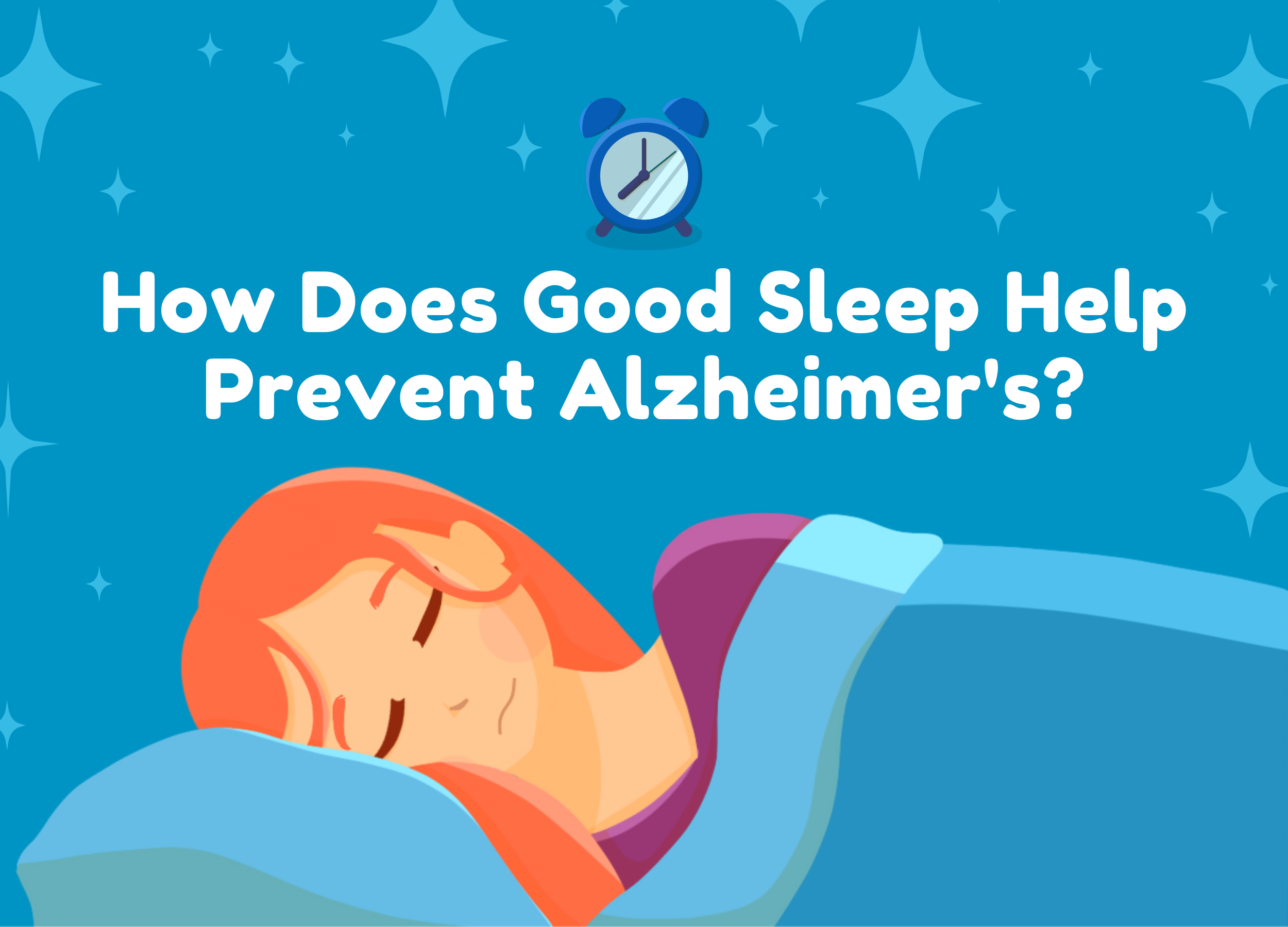Edited by: Anvitha Mattapalli, Kavya Gurunath, & Laya Vijay, Blogged by Sahithi Lingampalli
Many of us get minimal amounts of sleep, and for some people, it’s okay. However, studies have shown that getting a full amount of sleep can help prevent Alzheimer’s disease. This disease is an irreversible and progressive brain disorder that destroys memory and thinking skills and one’s ability to do even the simplest tasks. So, how does this happen? During deep sleep, or the Non-Rapid Eye Movement (Non- REM) stage, your brain washes away any toxic products that can increase risk for Alzheimer’s. This research has been done for decades through observations linking poor sleep and the long term problems it can cause in association to memory and thinking.
Matthew Walker, a professor of neuroscience and psychology at the University of California,Berkley conducted research where they studied the sleep cycles of 32 people in their 70s. They looked for the slow electrical waves that signal deep sleep. The results showed that none of the participants had memory problems. Lack of deep sleep is associated with high levels of tau, which forms toxic tangles inside the brain cells of people with Alzheimer’s. Toxic tangles are abnormal accumulations of the tau proteins that collect inside of neurons. The toxin Tau is a protein that is mainly found in the Central nervous system. During deep sleep, the brain almost turns into a dishwasher. Things like tau and amyloid beta, this protein disrupts cell to cell communication and activates immune cells and these cells trigger inflammation which can cause brain cells to be destroyed. These proteins that are linked to Alzhiemers disease, seem to be removed faster from the brain when you’re asleep.
During deep sleep, your spine releases a fluid called cerebrospinal fluid, which is a clear fluid that bathes and “cushions’’ the brain and spinal cord. It does this because CSF protects the brain from damage. It provides lubrication between the bones, brain and the spinal cord and when someone suffers from a brain injury the fluid protects it from the impact. Proteins such as tau and amyloid beta are linked to Alzhiemer’s. The fluid actually helps to clean out these toxins. This fluid, however, is only released during deep sleep. This is why it is crucial to get the ideal amount of sleep for your age.
References
Hamilton, J. (2020, November 17). NPR Cookie Consent and Choices. Npr.Org. Link
Hamilton, J. (2020, November 16). Scientists discover a link between lack of deep sleep and Alzheimers Disease. Npr.Org. Link
Spires-Jones, T. L., Kopeikina, K. J., Koffie, R. M., de Calignon, A., & Hyman, B. T. (2011). Are tangles as toxic as they look?. Journal of molecular neuroscience : MN, 45(3), 438–444.Link
Kreeger, K. (2013, May 7). Tau is its Own Worst Enemy. Penn Medicine News. Link
Beta-amyloid and the amyloid hypothesis. (2017). Beta-Amyloid and the Amyloid Hypothesis, 1–4. Link
Britannica, T. Editors of Encyclopaedia (2020, September 3). Cerebrospinal fluid. Encyclopedia Britannica. Link

